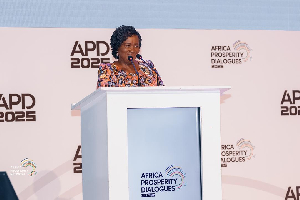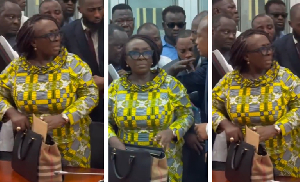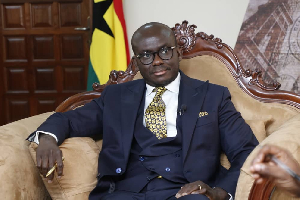Recently, the President announced a GH¢8.2 billion package aimed at supporting Small and Medium-sized Enterprises (SMEs) in Ghana. While the intention behind this announcement is commendable, it raises significant concerns about its efficacy and timing. With an economy as unpredictable as ours, this move could be likened to fetching water in a basket, leading to an inevitable waste of resources.
Ghana's current economic climate is fraught with instability. The cost of doing business is unpredictable, with inflation rates fluctuating and currency depreciation posing serious challenges to operational sustainability. In such an environment, throwing a substantial sum of GH¢8.2 billion at SMEs without addressing the underlying economic issues is akin to pouring water into a basket—no matter how much you pour, it won't hold.
SMEs are undeniably crucial to Ghana's economic fabric, but they need a stable and conducive environment to thrive. With the ongoing economic volatility, it is unlikely that these businesses will be able to effectively utilize the funds to generate sustainable growth. Instead, the money may merely serve as a temporary relief, failing to address the root causes of their struggles.
The timing of this package also raises questions. It comes at a juncture when many SMEs are already on the brink of collapse, having struggled through years of economic hardship and the fallout from the COVID-19 pandemic. For many, this intervention is simply too late. The damage has already been done, and a cash injection now may not be enough to revive their fortunes.
Moreover, this initiative appears to be more of a political maneuver than a well-thought-out economic strategy. Announcing such a significant package during an election period can be seen as an attempt to garner favor rather than a genuine effort to support the business community. This approach undermines the credibility of the initiative and casts doubt on its potential effectiveness.
Given the current economic conditions, a more prudent use of these resources would be to invest in sustainable initiatives such as John Mahama’s Women’s Bank. This proposed institution aims to provide targeted financial support to women entrepreneurs, who are often the backbone of our informal economy.
Women-owned businesses have a proven track record of reinvesting profits into their communities, leading to broader socio-economic benefits. By channeling funds into the Women’s Bank, the government would not only support a demographic that has been historically underserved but also promote inclusive growth. This would have a more lasting impact on the economy than a broad, untargeted SME package.
While the GH¢8.2 billion package for SMEs may appear as a generous gesture, it is a misplaced effort in the face of Ghana’s unpredictable economic landscape. The timing is off, the underlying issues remain unaddressed, and the potential for political motivations cannot be ignored.
Instead of wasting these resources on a temporary fix, the government should consider investing in more sustainable initiatives like John Mahama’s Women’s Bank, which promises to deliver long-term economic benefits and foster a more inclusive growth trajectory.
Opinions of Thursday, 18 July 2024
Columnist: Enyonam Adzo Apetorgbor



















